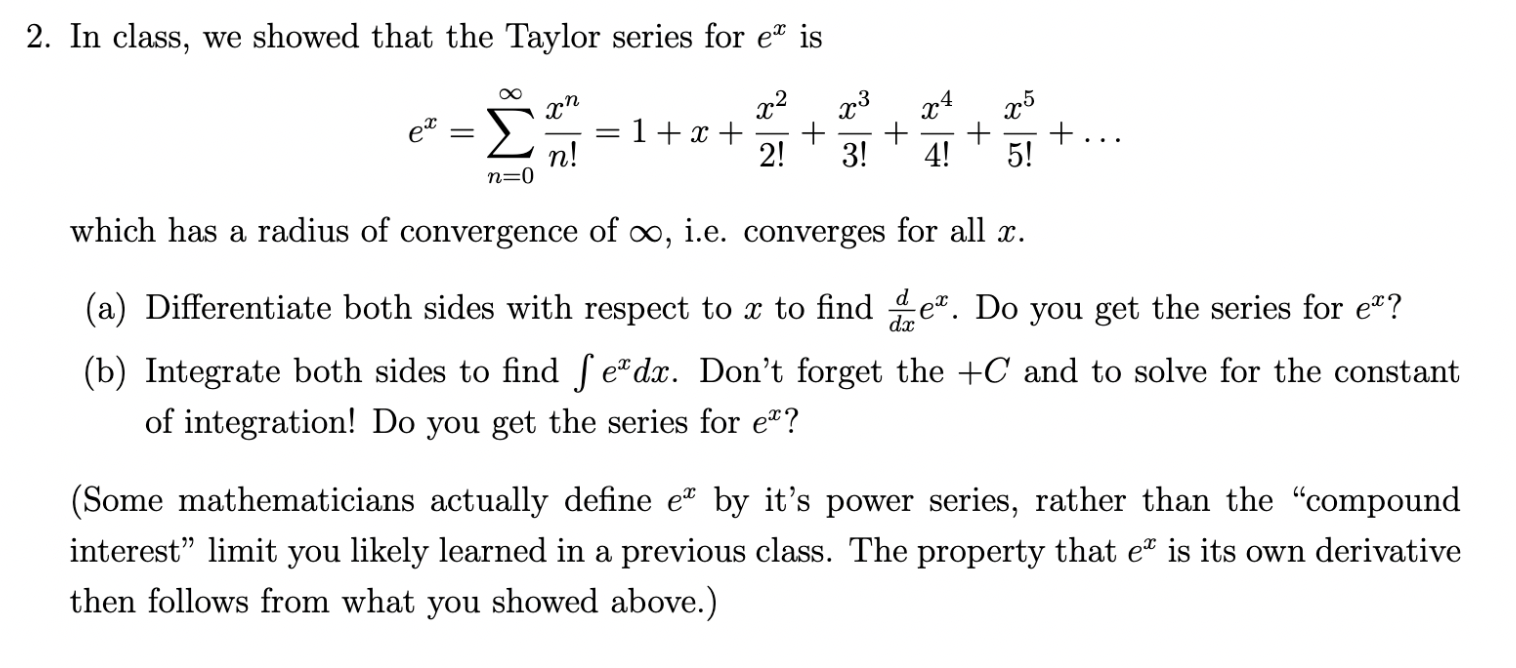Home /
Expert Answers /
Calculus /
2-in-class-we-showed-that-the-taylor-series-for-e-x-is-e-x-sum-n-0-infty-fra-pa303
(Solved): 2. In class, we showed that the Taylor series for \( e^{x} \) is \[ e^{x}=\sum_{n=0}^{\infty} \fra ...
2. In class, we showed that the Taylor series for \( e^{x} \) is \[ e^{x}=\sum_{n=0}^{\infty} \frac{x^{n}}{n !}=1+x+\frac{x^{2}}{2 !}+\frac{x^{3}}{3 !}+\frac{x^{4}}{4 !}+\frac{x^{5}}{5 !}+\ldots \] which has a radius of convergence of \( \infty \), i.e. converges for all \( x \). (a) Differentiate both sides with respect to \( x \) to find \( \frac{d}{d x} e^{x} \). Do you get the series for \( e^{x} \) ? (b) Integrate both sides to find \( \int e^{x} d x \). Don't forget the \( +C \) and to solve for the constant of integration! Do you get the series for \( e^{x} ? \) (Some mathematicians actually define \( e^{x} \) by it's power series, rather than the "compound interest" limit you likely learned in a previous class. The property that \( e^{x} \) is its own derivative then follows from what you showed above.)
Expert Answer
Let us find the derivative of the terms in the series of ex term by term ddx(1)=0ddx(x)=1ddx(x22!)=xddx(x33!)=x22!ddx(x44!)=x33!…=…
